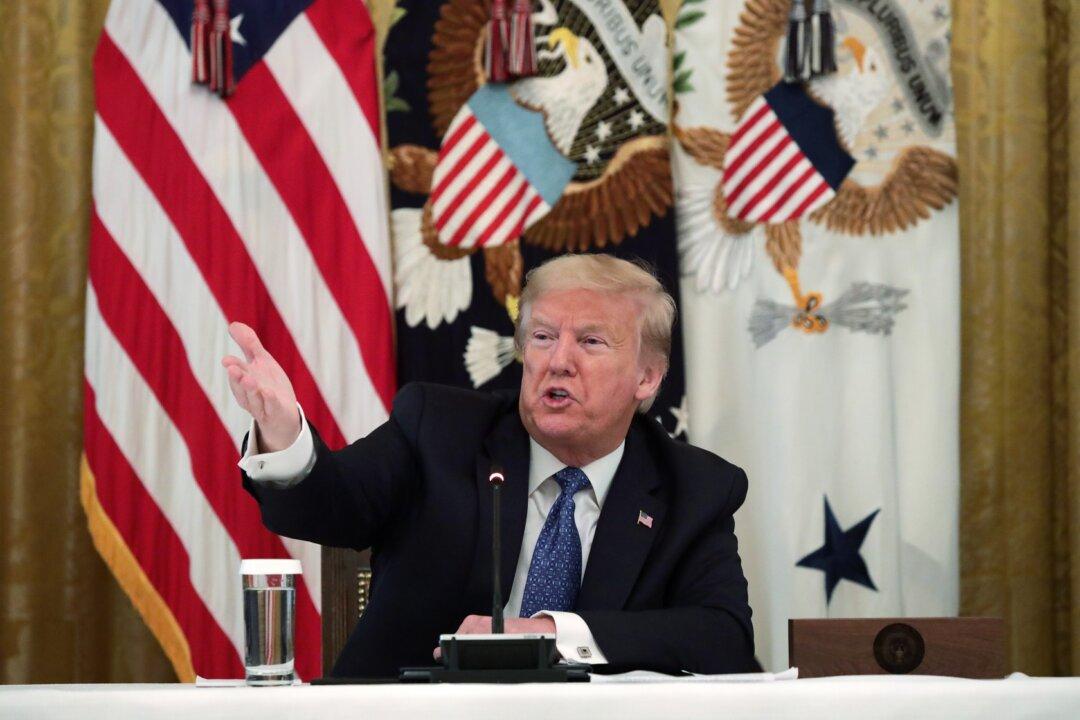President Donald Trump signed an executive order last week aimed to boost the pandemic-weakened economy and strengthen basic due process protections for Americans involved in agency regulatory proceedings as part of what the administration calls the Regulatory Bill of Rights.
“To protect our people and defeat the virus, we must also defend the health of our nation’s economy,” the president said at a cabinet meeting on May 19. “To achieve this goal, we’ve slashed red tape and bureaucracy and unleashed the largest industrial mobilization since World War Two.”





